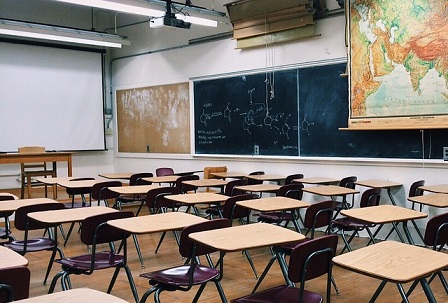
by Dr David Roy
Increasingly there has been concern from all education stakeholders over the safety of all individuals in schools. Allegations of staff have been targeted with violence and bullying by children and parents and colleagues; and allegations of children being targeted with violence and bullying by staff as well as other children. We as a society need to find a solution to change this drift and put safety at the forefront.
When CCTV cameras were introduced to a High School in Sydney, there was a noted 70% drop in bullying. Teachers in a Primary school were immediately suspended when recordings of their bullying and assault on young children were released to the media. Despite the many concerns over video technology in schools, this is a potential tool that needs to be looked at through the prism of health and safety, as well as potential pedagogical benefits.
The issues with CCTV
Privacy will always be of prime concern when any recording of children and/or employees is suggested. Schools currently keep confidential the most private information of families and staff; from health records to court orders. Schools can and should be trusted to keep CCTV footage secure. CCTV is already in place in many schools in playgrounds and reception areas. It is estimated 85% of UK schools have CCTV in use. The larger question is whether CCTV is appropriate in the classroom. With 20-30 children in an average classroom, along with at least one staff member it is hard to defend the argument that classrooms are private places, especially given the significant public funding involved. CCTV could deter potential assaults by staff or children. It also gives evidence against false allegations. Indeed, it could be used to support teachers in managing behaviour, gaining support from parents and improving pedagogical practice.
The Need for CCTV
Bodies such as the NSW Department of Education Employment Performance and Conduct are under review, in part because of the challenge of an internal body attempting to impartially investigate allegations. Employment places where there are children will always be a target for those who wish to mistreat the more vulnerable will attempt access. Children with a disability are three times more likely to be abused, non-verbal children ten times more likely. CCTV and mobile camera footage have been instrumental as evidence tools to prosecute and remove those minority adults who tarnish the whole teaching profession. The very same technology has been used to vindicate those staff members falsely accused. What we now need is research studies to evaluate its potential to support education and schools.
Wherever we go in society, we are filmed by CCTV. Cameras are outside houses, for traffic management, street protection, in most shops, even at every ATM machine. Whether we like it or not, cameras are already in the classroom with every BYOD a child uses.
Perhaps it is time schools took control over the use of CCTV in the classroom, to ensure it is ethical, safe and protects everyone.
HAVE YOUR SAY: Should schools put CCTV cameras in classrooms?
Dr David Roy from the University of Newcastle works closely with governments and disability advocacy groups.


